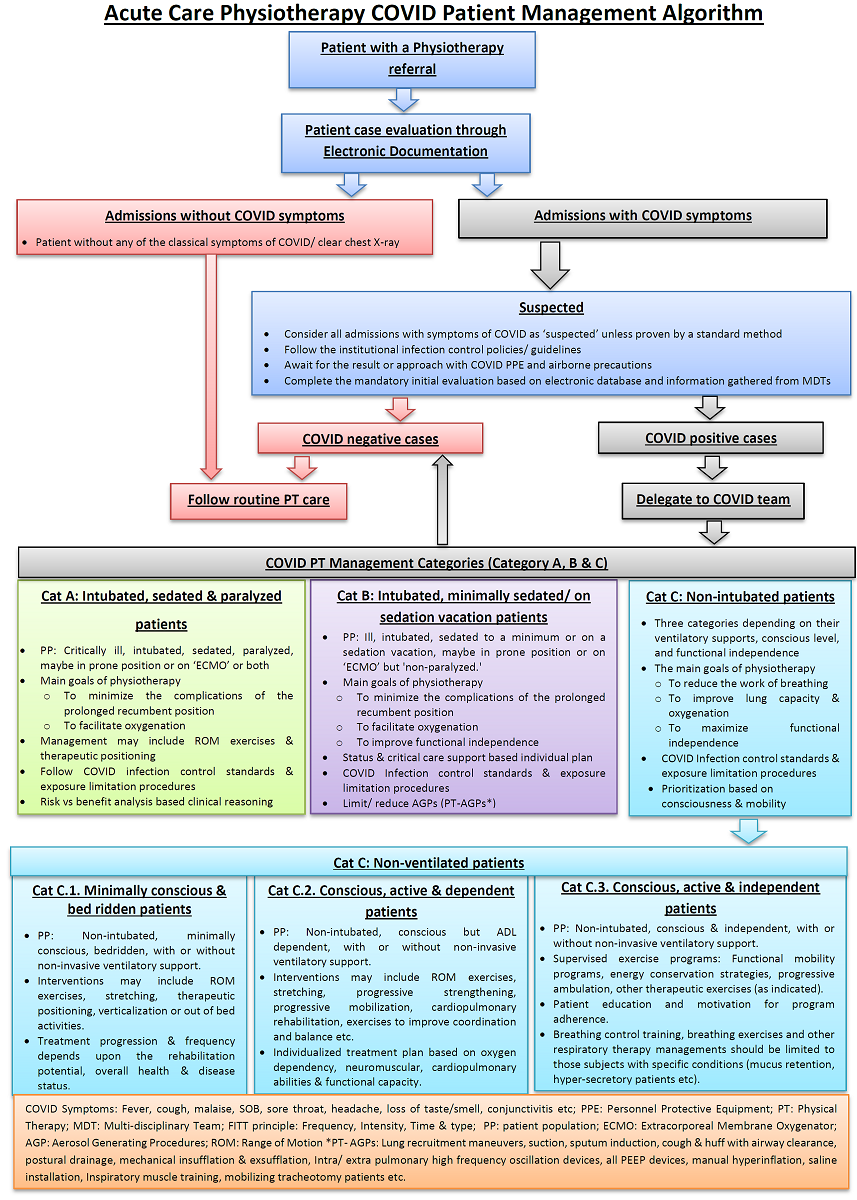This document outlines best practice recommendations for an acute care physiotherapy for patients with COVID-19, with an emphasis on critical care rehabilitation including the patients in extra corporeal membrane Oxygenation (ECMO) support, developed for practice in Qatar but adaptable within any settings. This recommendation is the result of a combination of systematic evidence search, subsequent critical evaluation of retrieved evidence and consensus process. The agreed recommendations were integrated into a physiotherapy clinical reasoning algorithm. It includes recommendations on physiotherapy referral, screening, management categories and best practice recommendations. It is intended for use by physiotherapists and other relevant stakeholders in the acute care setting caring for adult patients with suspected and/or confirmed COVID-19.

